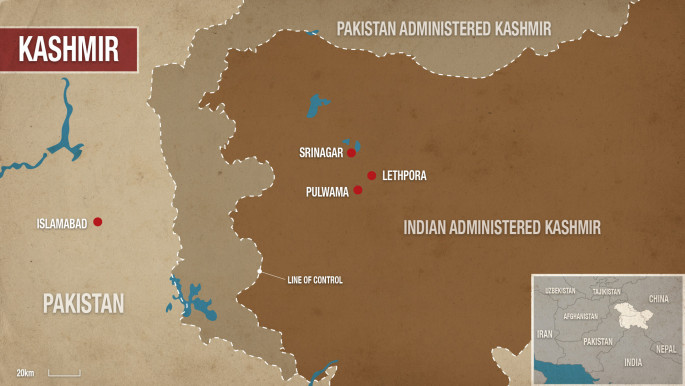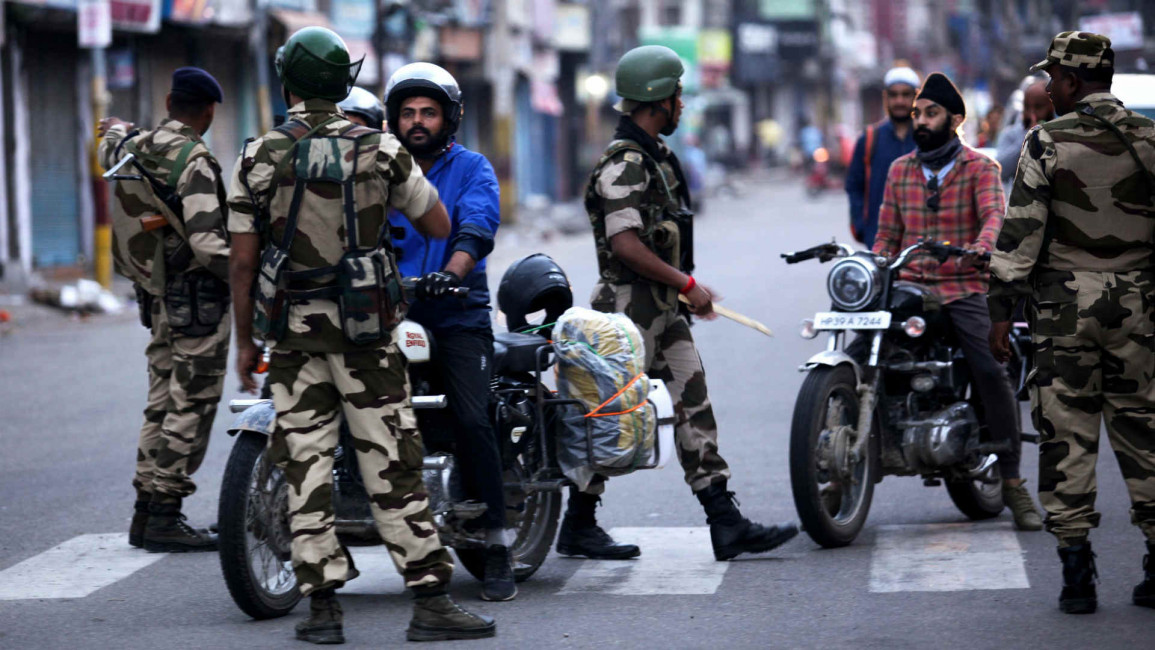Indian cabinet meets amid heightened tensions in Kashmir
India's Prime Minister Narendra Modi held a security cabinet meeting Monday, hours after his government ordered a lockdown in disputed Kashmir, cutting phone and internet links and putting local politicians under house arrest.
New Delhi has said the sweeping clampdown, enforced by tens of thousands of military reinforcements, was needed because of the "prevailing law and order situation".
But politicians said Modi could be about to change the special status of Indian-administered Kashmir and has ordered the measure over fears of unrest in the Muslim-majority territory, which is also claimed by Pakistan.
All phones, internet services and cable networks were snapped at midnight in the restive Himalayan region of more than seven million people following days of soaring tensions.
Only residents with a "curfew pass" were allowed on the streets.
NDTV, one of the rare broadcasters able to transmit from the main city Srinagar, showed empty streets dominated by security forces.
Ahead of the clampdown, India ordered thousands of tourists out of Kashmir saying there was a threat of militant attacks by Pakistan-backed groups.
Islamabad has denied the claim and in turn accused Modi of seeking to overturn the region's Muslim-majority by changing its status so more outsiders have the right to buy property and get jobs.
Thousands of paramilitary forces and riot police moved in around midnight, blocking roads with barbed wire and placing steel barricades across roads in several parts of Srinagar.
|
Scores of local politicians and two former chief ministers were placed under house arrest.
Kashmir has been in the grip of an insurgency for three decades which has left tens of thousands dead, mainly civilians.
Modi's Hindu nationalist government has said that changes to the constitutionally guaranteed job and property privileges for Kashmiris were needed to end the conflict.
Comment: Don't let India turn a blind eye to Kashmir torture report
It put Kashmir under direct rule from New Delhi last year after Modi's Bharatiya Janata Party ended a coalition with a local party in the state assembly.
Both India and Pakistan claim the Kashmir region but control only parts and have fought two of three wars over the territory. Guerilla groups have fought against Indian rule in the Indian administrated Kashmir for the past thirty years.
"Many here want either independence from India or the merger of territory with Pakistan," wrote Aamir Ali Bhat, a Kashmir-based journalist, in a piece for The New Arab.
Nearly 80,000 paramilitary forces have been flown into Kashmir in past 10 days, already the world's most militarised region where India has roughly 500,000 troops.
The security measures have sparked panic among residents, who formed long queues outside petrol stations, food stores and cash machines.
 |
Follow us on Twitter: @The_NewArab



